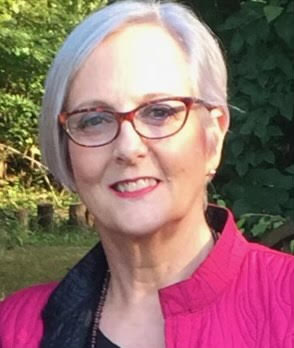Years ago Sue Bohlin decided to embrace correction without defensiveness. Here’s why.
As the webmistress for Probe.org, I love getting emails alerting me to typos, either in the content of our articles or the coding that keeps people from seeing or hearing what they are looking for. I love being able to fix mistakes; there’s a deeply satisfying sense of, “Ohhhh that’s better!”
I want to get things right. I want to set things right. I want to BE right.
That could certainly be about sinful pride, but there’s another side to it. I love truth, that which corresponds to reality. If I am mistaken—or worse, misled—about something, I love learning about it so I can shift, bringing my beliefs or my position into alignment with what is true and right.
Originally I titled this post “Why I Love to Be Wrong,” but that’s not really correct. What I love is “the a-ha moment” of discovering I had been believing something other than what’s true, and welcoming correction, so I can adjust and pivot.
One of the major reasons my church’s Women’s Bible Study teaching is so good, by the grace of God, is that the teaching team gathers on Mondays for the run-through of that week’s teacher. Each teacher commits to check her ego at the door and choose to gratefully receive input and advice about how to improve an explanation or illustration, or correct what is off-base or potentially confusing. It takes humility to receive constructive criticism, which runs the gamut from “you can make that better” to “you are wrong here.” But being willing to receive that kind of feedback fueled by love and mutual respect makes the whole teaching team improve.
Years ago I heard a word of wisdom: all defensiveness is fleshly. Defensiveness is the instant desire to protect oneself from the shame of feeling criticized or dishonored. It can look like deflecting the comment with something like, “You do it too!” It can look like denying whatever is said: “No, you’re wrong. I didn’t do/say/intend that.” It can look like shutting down emotionally. Defensiveness is a reaction to the message of “you’re wrong” or “you’re not okay.” But we can choose to lay down our impulse to defend ourselves and trust God with it. Wise and godly people have counseled others on how to respond to criticism: ask if it’s true; if it’s valid, admit it and change your ways. If it’s not valid, recognize that sometimes you’ll be misunderstood, so let it go and trust God.
I loved discovering Proverbs 12:1 in the NIV: “Whoever loves discipline loves knowledge, but whoever hates correction is stupid.” That means that our attitude toward correction—being told or shown we are wrong—is completely our choice, and we can choose to love correction.
So I do. Years ago I pre-decided to welcome being shown where I’m wrong.
Which is why I consider disillusionment a gift.
If we discover we have been buying an illusion, embracing disillusionment means moving beyond illusion into reality, which is always a good thing, right?
In the video series “The Truth Project,” Dr. Del Tackett teaches what he calls the Cosmic Battle: “The battle between God’s Truth and the lies and illusions of the world, the flesh and the devil. The arguments and pretensions that set themselves up against the knowledge of God, against His nature and His word.” Ever since Genesis 3, earth has been a battleground for truth vs. lies and illusions.
Illusions are the air we breathe, the water we swim in, here on Battleground Earth.
So when we discover yet another illusion we have unthinkingly embraced, it is a gift to be able to reject the illusion and embrace the truth.
I have rejected a number of illusions ranging from the almost ridiculous to the eternally important.
Almost ridiculous: I had been under the illusion that camping was the only way to enjoy a budget vacation. I hate sleeping in tents or even a camper. Even more, I especially hate having to walk a block to get to a bathroom. But then I discovered the delightful truth that cruising is a way to experience luxury on a budget, with my own bathroom, and other people cooking and cleaning and entertaining me for less than $100 a day. Such a marvelous disillusionment!
Eternally important: As a college student, I realized that I had believed the lie that the vibrant religion of first-century Christianity was long dead and unavailable, having been replaced by empty ritual and repetition. The TRUTH was that biblical Christianity—being indwelled by God Himself because I have trusted in Christ—was very much alive and supernatural, becoming the source of unimaginable joy that just keeps getting better and better the longer I walk with Him. Such a wonderful disillusionment!
The most recent big disillusionment: At the beginning of the pandemic, I embraced the messaging that age 65+ people like me were at grave risk and needed to stay home. I was pretty much terrified, equating this new virus to the horrors of the Bubonic Plague. When I told my nurse friend, whom I had promised I would visit in her home, that I needed to protect myself inside my own home, she asked, “What about the Christians in the Middle Ages who were the hands and feet of Jesus to the people with the plague? What if they had stayed inside and hid? Who’s going to take care of the first responders and the others who don’t have a choice to stay home if not the Christians?”
Whoa. In a moment, the cloud of fear that had enveloped me—which I came to realize was an illusion meant to hold me hostage—dissipated. I remembered Psalm 139, “All the days ordained for me were written in Your book before one of them came to be.” I would not, and will not, die before the day God has ordained. One of our elders reminded me that Jesus had asked, ““And which of you by being anxious can add a single cubit to his life’s span?” (Matthew 6:27)
I started visiting my friend on Saturdays for over a year, and she told me that I was the only person other than her patients who would touch her. Emotionally, like millions of others, she was dying from isolation and rejection. It was such a joy for me to live in the freedom that disillusionment had brought.
Because I was really, really glad to learn I was wrong.
This blog post originally appeared at blogs.bible.org/why-i-love-to-learn-im-wrong/ on April 19, 2022.

 At 66, I was stung as the future I had anticipated seemed to be snatched away. The time I likely would not have with my children and grandchildren. I didn’t feel frightened as much as sad. I know that God is Lord of my past, present, and future, so I was secure in His will and His care.
At 66, I was stung as the future I had anticipated seemed to be snatched away. The time I likely would not have with my children and grandchildren. I didn’t feel frightened as much as sad. I know that God is Lord of my past, present, and future, so I was secure in His will and His care. One of the best ways to get in the habit of saying “Thank You, Lord” is a gratitude journal. It’s a wonderful discipline to record three things every day (or night) where you saw God being gracious and loving and kind to you, or to someone else. I want to make that easy for you, so I have a gift for each of you, a personalized gratitude journal. I challenge you, over the next few years, fill it up, one day at a time. What a magnificent form of worship that would be!
One of the best ways to get in the habit of saying “Thank You, Lord” is a gratitude journal. It’s a wonderful discipline to record three things every day (or night) where you saw God being gracious and loving and kind to you, or to someone else. I want to make that easy for you, so I have a gift for each of you, a personalized gratitude journal. I challenge you, over the next few years, fill it up, one day at a time. What a magnificent form of worship that would be!


